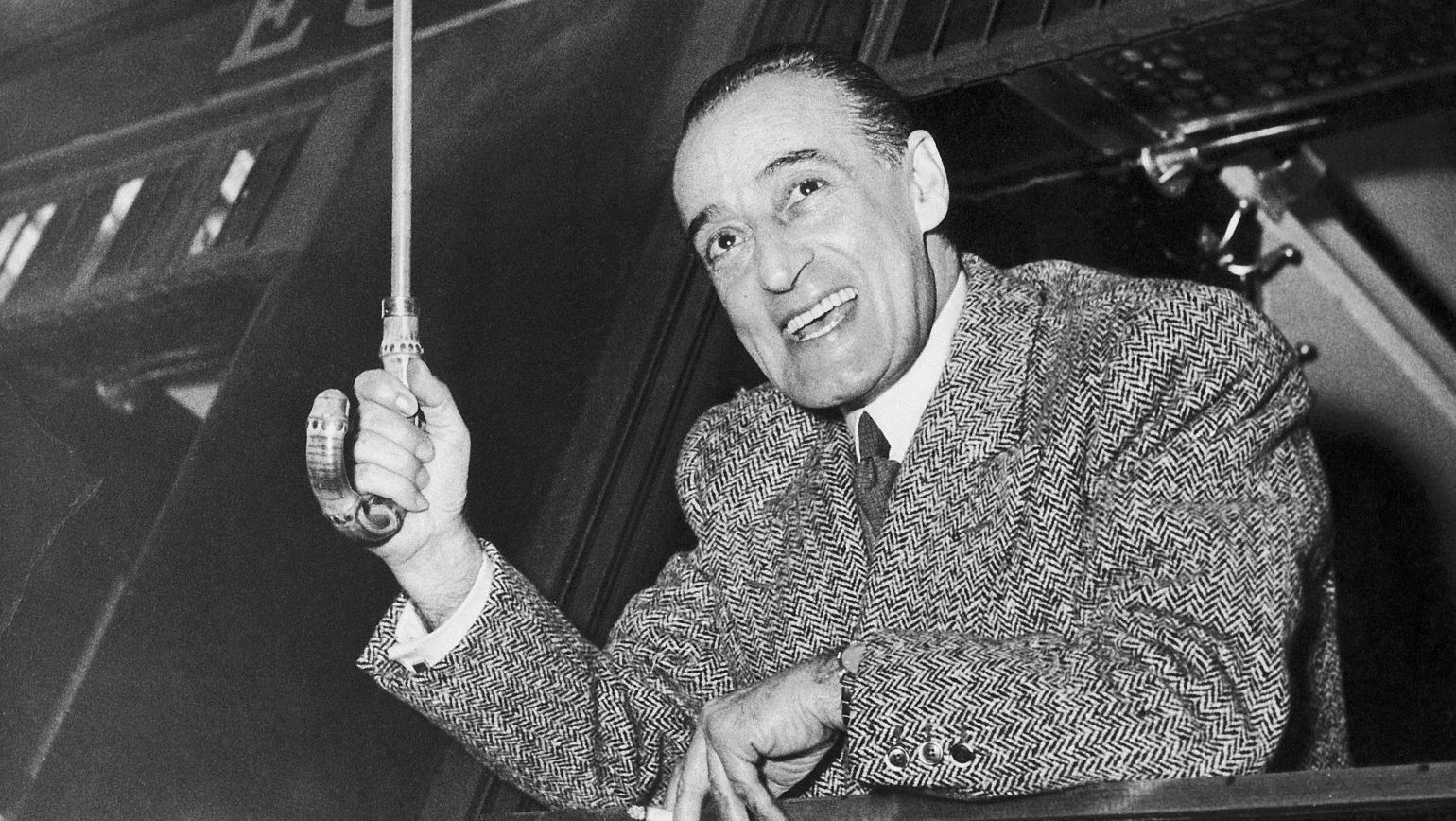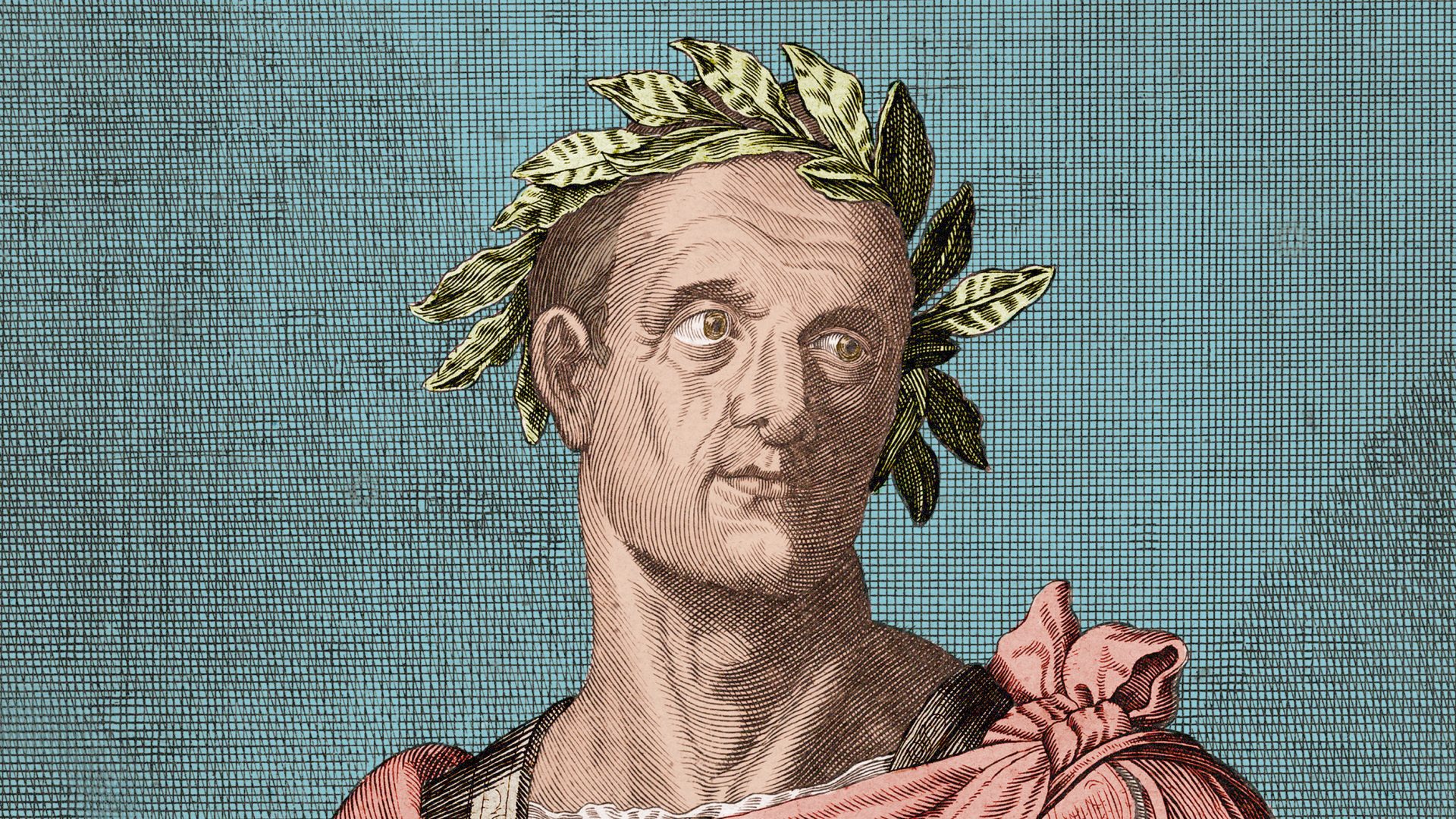If he hadn’t been busy running for his life, Totò might have stopped to smile at the absurdity of it all. It was February 1951, and the man Italy called its “prince of laughter” was filming a chase sequence in what he would come to consider the best of his 97 movies, Guardie e ladri (Cops and Robbers). But the film-makers weren’t the only ones shooting.
Directed by the talented team of Stefano “Steno” Vanzina and Mario Monicelli, produced by Italian film behemoths Carlo Ponti and Dino De Laurentiis and photographed by future horror legend Mario Bava, Cops and Robbers paired the crooked-faced Totò with his good friend Aldo Fabrizi, the former playing a petty thief, the latter a corpulent copper. Though they’d known one another for years, the duo had never worked together, and their enthusiasm and excitement rubbed off on the rest of the cast.
But during a chase sequence came near disaster. Believing they’d stumbled upon the aftermath of a real robbery, two Carabinieri drew their guns and began to fire – a series of warning shots, though Totò and Fabrizi didn’t know that. They found themselves running for cover.
When calm was restored, the blushing policemen left the location with autographs for their kids and the best wishes of the leading men. Still, if Antonio “Totò” Clemente had been shot dead while enjoying his finest hour on film, it wouldn’t have been out of keeping with the bad luck that dogged so much of his life. That he remained upbeat despite his many misfortunes was amazing. That he managed to make his home country laugh for over half a century borders on the miraculous.
Totò’s run of bad luck began with his birth in 1898 in Rione Sanità, one of Naples’s most disadvantaged districts. He was born to an unwed Sicilian mother. Totò’s father was a Neapolitan marquis, Giuseppe de Curtis, whose own wealthy dad refused to recognise his son’s illegitimate offspring. Thus, Totò was abandoned to a childhood of crushing poverty.
Totò survived by making himself and others laugh. “I know poverty by heart, and poverty is the script for true comedy,” he once said. “You can’t make people laugh unless you are familiar with pain, hunger, cold, hopeless love, and the disgrace of a hole in the seat of your pants. In other words, you can’t be a real comic if you’ve never had to wage war on life.”
So he rolled his eyes wildly for schoolfriends and he pulled faces for his family. While practising in front of the mirror, something literally clicked during one of these gurning sessions – his chin now permanently jutted out to the right, making him look something of a cross between Desperate Dan and Kenny Everett’s Marcel Wave.
Together with a crooked nose acquired during a school boxing lesson, it added up to a face that was less lived in than vandalised, at once cartoonish and very human. Like Tommy Cooper and Tony Hancock, it was a look of comic vulnerability that gave its bearer the credentials of the ordinary man locked in a valiant but unwinnable fight with fate.
“It’s all crooked and asymmetrical,” said its inhabitant. “The left side is passable, a long, sad face. But the right side… Jesus! Mary! It isn’t funny; it’s without dignity. Oh, how I hate that right side! That chin!”
Armed with that face, Totò rejected his mother’s pleas to enter the priesthood in order to pursue a career in entertainment instead. Using the stage name “Clement”, his gift for mimicry and adherence to the traditions of Commedia dell’Arte were such that he was quite the local hero by the time he was called up to fight in the first world war.
On his return from the front, he moved to Rome and thrived in avanspettacolo, the Italian theatre’s equivalent of vaudeville. Touring the nation as Totò, he was soon one of Italy’s most celebrated live performers.
When his grandfather died, his mother finally married the marquis, and the boy from the backstreets of Naples got a new name – Antonio de Curtis – and some family titles: Principe Conte Palatino, Cavaliere del Sacro Romano Impero, Nobile Altezza Imperiale. Then cinema came along and Italy’s favourite clown became the country’s equivalent of Buster Keaton.
His characters butted up against establishment pettiness, comically scheming for status and dignity, which proved immensely popular and relatable in the grim postwar years. The title of his 1955 film Siamo uomini o caporali (Are we men, or are we corporals?) so perfectly summed him up, he used it as the title of his autobiography.
But none of the fame and the fortune could insulate him from further pain. The agony of losing a son mere hours after his birth, the suicide of his former lover Liliana Castagnola, a degenerative eye condition that all but left him blind, critical indifference and even a decline in popularity with the public towards the end of his life – there wasn’t anything funny about the jokes life continued to play on Totò.
Take Cops and Robbers. It is now recognised as a classic and in 2008, was included in the Ministry of Cultural Heritage’s Cento film italiani da salvare. A survey of 100 essential Italian films, it’s quite the delight to see Totò and his chin wedged between Bertolucci’s The Conformist and Fellini’s 8½.
But on set, even before the Carabinieri drew their weapons, some were firing at the production. With the Catholic Church forever leaning over its shoulder, the Italian board of censors didn’t much care for a story that saw a crook fraternising with a cop. “How could you put a cop, a state representative, on the same level of a burglar?” the moral guardians raged upon first reading the script, one based on an idea from Federico Fellini. They were still raging when the film reached cinemas in the autumn of 1951.
So when the 1952 Cannes Film Festival rolled around, no member of the cast or crew could be bothered travelling to the south of France despite the fact that Cops and Robbers was in the running for the Palme d’Or. In the end, it took home the prize for best screenplay. Or rather it didn’t, since no one was there to collect it. Like all the slings and arrows that life threw his way, Totò simply took it on the chin.



